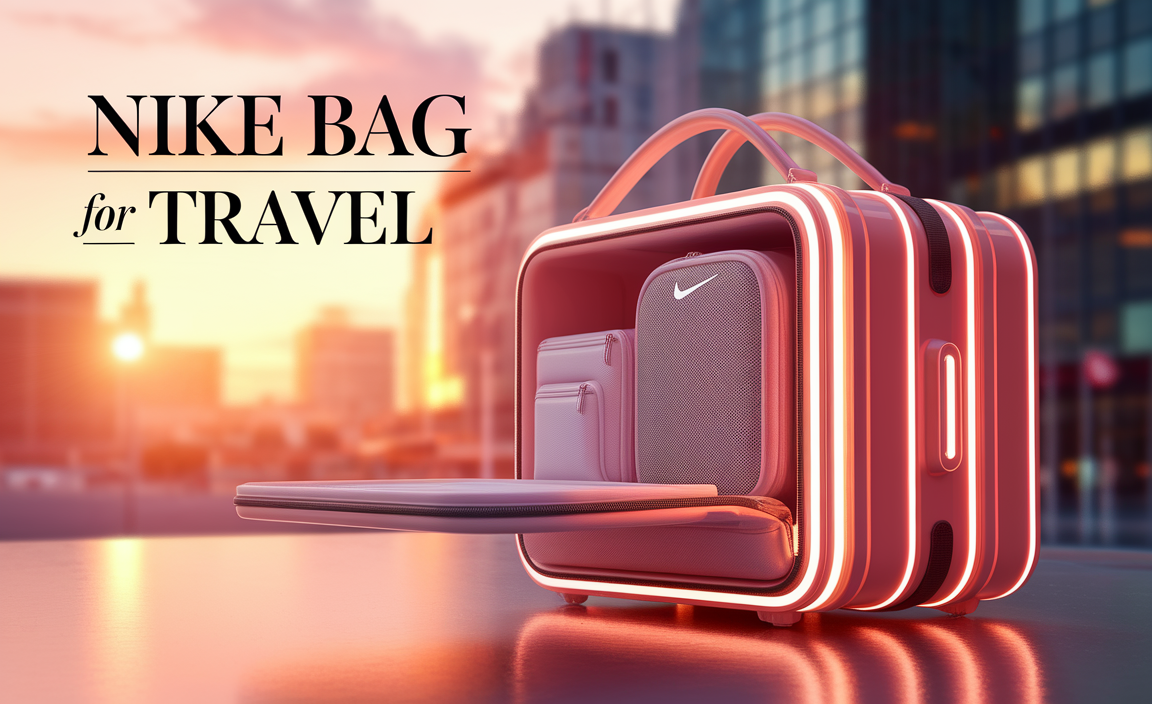Brazil’s LGBTQ+ friendly areas offer vibrant, accepting destinations from bustling cities to scenic coastlines. Explore this guide to find welcoming spots for your unforgettable Brazilian adventure, ensuring comfort and joy.
Thinking about a trip to Brazil but wondering where you’ll feel most welcome and safe? It’s completely understandable to want to know which destinations are known for their vibrant LGBTQ+ communities and welcoming atmosphere. Brazil pulsates with life, music, and incredible diversity, and many parts of this South American gem are celebrated worldwide for their inclusivity.
We’re here to guide you through the best LGBTQ+ friendly areas, making your travel planning smooth and your experience joyful. Get ready to discover the spots where you can truly be yourself and soak in the Brazilian spirit! Planning a trip should be exciting, not stressful. That’s especially true when it comes to finding destinations where you can relax and be yourself.
For LGBTQ+ travelers, this means looking for places with a strong sense of community, visible support, and a general atmosphere of acceptance. Brazil, a land of samba, sunshine, and stunning landscapes, has several cities and regions that have become internationally recognized havens. Whether you’re seeking buzzing nightlife, beautiful beaches, or rich cultural experiences, there’s a corner of Brazil waiting for you.
Why Brazil is a Fantastic LGBTQ+ Friendly Destination
Brazil has made significant strides in LGBTQ+ rights and acceptance over the past few decades. While challenges remain, as they do in many countries, the overall sentiment in key areas is overwhelmingly positive and celebratory. The country’s famously passionate and open culture often translates into a warm embrace of diversity.
Here’s why Brazil shines:
- Legal Protections: Brazil has implemented robust legal frameworks protecting LGBTQ+ individuals from discrimination. Same-sex marriage is legal nationwide, and there are strong laws against homophobia and transphobia. The Brazilian Supreme Court has criminalized homophobia and transphobia, equating it to racism.
- Visible LGBTQ+ Communities: Major cities boast active and visible LGBTQ+ communities, evidenced by thriving nightlife scenes, community centers, and large-scale pride events.
- Cultural Acceptance: While regional differences exist, Brazil’s general cultural vibe is often seen as sensual, expressive, and accepting of diverse lifestyles.
- World-Renowned Pride Events: São Paulo’s Pride Parade is the largest in the world, drawing millions of participants and showcasing the country’s vibrant LGBTQ+ spirit.
Top LGBTQ+ Friendly Areas in Brazil
Brazil offers a range of destinations, each with its unique charm. From the cosmopolitan energy of its largest cities to the laid-back vibe of its beach towns, you’re sure to find your perfect spot.
1. São Paulo: The Vibrant Metropolis
São Paulo is Brazil’s economic powerhouse and its undisputed LGBTQ+ capital. The city is a melting pot of cultures and offers an unparalleled level of inclusivity, especially in certain neighborhoods.
What Makes São Paulo LGBTQ+ Friendly?
- Augusto de Campos Neighborhood (Bela Vista): This area, often referred to as “Bixiga,” is the historical heart of São Paulo’s LGBTQ+ scene. It’s packed with bars, clubs, restaurants, and community spaces tailored to the LGBTQ+ community.
- The São Paulo Pride Parade: As mentioned, this is not just the largest in Brazil but the largest in the world, a testament to the city’s vibrant and accepted LGBTQ+ population. It’s an explosion of color, music, and activism.
- Diverse Nightlife: From underground clubs to sophisticated lounges, São Paulo offers a vast selection of LGBTQ+-focused nightlife options catering to every taste.
- Cultural Hub: Beyond nightlife, São Paulo boasts world-class museums, theaters, and galleries, offering plenty of exploration for all travelers.
Practical Tips for São Paulo:
- Getting Around: The subway system is extensive and efficient, making it easy to navigate between neighborhoods.
- Accommodation: Look for hotels or apartments in Bela Vista, Jardins, or Pinheiros for proximity to LGBTQ+ hubs and amenities.
- Safety: Like any major metropolis, be aware of your surroundings, especially at night. Keep valuables secure.
2. Rio de Janeiro: The Marvelous City
Rio de Janeiro, with its breathtaking beaches and iconic landmarks, is another top destination for LGBTQ+ travelers. Its magnetic energy and famously welcoming spirit make it a must-visit.
What Makes Rio de Janeiro LGBTQ+ Friendly?
- Ipanema and Copacabana: These world-famous beaches have designated spots, like Posto 9 in Ipanema, that are popular gathering places for the LGBTQ+ community. It’s common to see rainbow flags and an open, friendly atmosphere.
- LGBTQ+ Nightlife: Rio has a thriving scene, particularly in the neighborhoods of Lapa and Copacabana, with numerous bars and clubs catering to diverse preferences.
- Rio Pride (Parada de L’Occidente): While smaller than São Paulo’s, Rio’s Pride event is a significant and joyful celebration held annually.
- Copa: The Iconic Beachfront: Copacabana is not just a beach; it’s a social hub where people from all walks of life mingle freely.
Practical Tips for Rio de Janeiro:
- Getting Around: The metro is useful for getting between major tourist areas. Taxis and ride-sharing apps are also readily available.
- Accommodation: Staying in Ipanema or Copacabana puts you right in the heart of the action and close to LGBTQ+-friendly areas.
- Safety: Be cautious with belongings on crowded beaches. Stick to well-lit areas at night and be mindful of common tourist scams.
3. Florianópolis: The Island of Magic
Known for its stunning beaches and relaxed atmosphere, Florianópolis, the capital of Santa Catarina state, is often called the “Magic Island” and is increasingly recognized as an LGBTQ+ friendly destination.
What Makes Florianópolis LGBTQ+ Friendly?
- Beaches Galore: Florianópolis boasts over 40 beaches, many of which are welcoming. Praia Mole and Joaquina are popular spots with a more bohemian and inclusive vibe.
- Emerging LGBTQ+ Scene: While not as established as São Paulo or Rio, Florianópolis has a growing number of bars and clubs catering to the LGBTQ+ community, particularly in the Lagoa da Conceição area.
- Natural Beauty and Outdoor Activities: It’s an ideal destination for those who love nature, surfing, hiking, and a more laid-back lifestyle.
Practical Tips for Florianópolis:
- Getting Around: Renting a car is highly recommended to explore the island’s many beaches and attractions.
- Accommodation: Consider staying near Lagoa da Conceição for good access to nightlife and a vibrant local scene.
- Safety: Like any island destination, be aware of remote areas and exercise caution, especially after dark.
4. Salvador, Bahia: The Soul of Brazil
Salvador da Bahia is a city steeped in history and vibrant Afro-Brazilian culture. It’s known for its incredibly welcoming people and has a significant and proud LGBTQ+ presence.
What Makes Salvador LGBTQ+ Friendly?
- Cultural Openness: Bahia is considered one of the most tolerant and expressive states in Brazil. The culture is deeply rooted in acceptance and celebration of individuality.
- LGBTQ+ Nightlife: The Rio Vermelho neighborhood is the epicenter of Salvador’s nightlife, with many bars and clubs that welcome LGBTQ+ patrons.
- Salvador Pride: The city hosts a lively Pride celebration, reflecting its spirit of inclusivity and diversity.
- Historical Charm: Exploring the Pelourinho, a UNESCO World Heritage site, offers a unique cultural experience with a warm, inviting atmosphere.
Practical Tips for Salvador:
- Getting Around: Taxis and ride-sharing apps are the most convenient ways to get around.
- Accommodation: Staying in Rio Vermelho or Santo Antônio Além do Carmo provides good access to cultural sites and nightlife.
- Safety: It’s advisable to use licensed taxis, especially at night. Be aware of pickpockets in crowded tourist areas.
Tips for a Safe and Comfortable Trip
Traveling to any new destination involves some preparation. Here are some tips to ensure your LGBTQ+ friendly trip to Brazil is as smooth and enjoyable as possible:
Packing Essentials for Comfort
No matter where you’re headed, comfort is key to enjoying your travels. For long flights or days exploring, having the right personal care items can make a world of difference. If you or a family member require them, packing discreet and highly absorbent adult diapers or child diapers can prevent stress and allow you to focus on the journey. Brands offering reliable absorbency and a comfortable fit are crucial for peace of mind. Always pack more than you think you might need.
Navigating Local Customs
- Learn a Few Portuguese Phrases: While English is spoken in tourist-heavy areas, knowing basic Portuguese phrases like “Olá” (Hello), “Obrigado/Obrigada” (Thank you), and “Por favor” (Please) will be greatly appreciated.
- Be Mindful of Public Displays of Affection (PDA): While generally accepted in larger cities and LGBTQ+-friendly zones, be observant of the local environment. If you’re in a more conservative area, it might be wise to be more discreet.
- Research Local LGBTQ+ Organizations: Knowing about local LGBTQ+ groups or advocacy organizations can be helpful for information and support if needed.
Safety First
- Stay Aware of Your Surroundings: This is standard advice for any traveler. Be vigilant, especially in crowded places or at night.
- Use Reputable Transportation: Opt for official taxis, ride-sharing apps, or hotel-arranged transport.
- Inform Someone of Your Plans: Let a friend or family member at home know your itinerary.
- Keep Valuables Secure: Use money belts, hotel safes, and avoid displaying expensive items openly.
- Trust Your Instincts: If a situation feels uncomfortable or unsafe, remove yourself from it.
Planning Your Itinerary
Consider the best time to visit based on weather and events. Brazil is vast, so focus on one or two regions to avoid spending too much time traveling between them. For instance, you could combine the urban excitement of São Paulo with the beach paradise of Rio de Janeiro.
Example Itinerary: São Paulo & Rio de Janeiro (10 Days)
- Days 1-4: São Paulo
- Arrive and check into your accommodation in Bela Vista or Jardins.
- Explore the Paulista Avenue, MASP museum, and Ibirapuera Park.
- Experience the vibrant nightlife in Bela Vista (Bixiga).
- Visit the Mercado Municipal for a taste of local flavors.
- If timing aligns, attend the São Paulo Pride Parade.
- Day 5: Travel to Rio de Janeiro
- Fly from São Paulo to Rio de Janeiro (short flight).
- Check into your hotel in Ipanema or Copacabana.
- Relax on the beach at Posto 9, if visiting.
- Days 6-9: Rio de Janeiro
- Visit Christ the Redeemer and Sugarloaf Mountain for iconic views.
- Explore the historic Santa Teresa neighborhood.
- Enjoy the nightlife in Lapa.
- Spend ample time relaxing on Ipanema and Copacabana beaches.
- Consider a guided tour for safety and insights.
- Day 10: Departure
- Depart from Rio de Janeiro.
When to Visit: Best Times for LGBTQ+ Travelers
Brazil’s climate varies significantly across its vast territory. Generally, the summer months (December to March) are hot and humid, coinciding with Carnival and major Pride events, making them incredibly lively but also crowded and more expensive. The shoulder seasons (April to June and September to November) often offer pleasant weather with fewer crowds, making them ideal for exploring and enjoying city life at a more relaxed pace.
Major LGBTQ+ Events in Brazil
Attending a Pride event or festival can be a highlight of any trip. Here are some key dates to consider:
- São Paulo Pride Parade: Typically held in June.
- Rio de Janeiro Gay Pride Festival (Parada de L’Occidente): Usually in November.
- Salvador Pride: Dates vary, often in late September or early October.
Always check the specific dates for the year you plan to travel, as they can shift.
Understanding LGBTQ+ Rights in Brazil
Brazil has a progressive record on LGBTQ+ rights, especially compared to some other South American nations. This legal and social framework contributes significantly to making many areas welcoming for LGBTQ+ travelers.
Key Legal Milestones
- 2011: The Supreme Federal Court recognized stable same-sex unions, granting them the same rights as heterosexual couples.
- 2013: The National Council of Justice authorized civil registries to perform same-sex marriages nationwide.
- 2019: The Supreme Federal Court criminalized homophobia and transphobia, equating it to the crime of racism. This decision provides a legal basis for prosecuting acts of discrimination and violence against LGBTQ+ individuals.
You can find more information on civil rights in Brazil through official government sources such as the Brazilian Government Portal.
Beyond the Major Cities
While the major cities offer concentrated LGBTQ+ scenes, many other beautiful parts of Brazil are inherently welcoming due to their relaxed culture and natural beauty. Small beach towns and surf destinations often have a laid-back vibe where individuality is embraced.
Consider Buzios (Rio de Janeiro State)
This charming coastal town, a short drive from Rio, has long been a popular getaway for the LGBTQ+ community. It offers beautiful beaches, a lively pedestrian street (Rua das Pedras) with many restaurants and shops, and a decidedly inclusive atmosphere.
It’s a wonderful option for a more relaxed, beach-focused experience without straying too far from major hubs.
Frequently Asked Questions
Is Brazil safe for LGBTQ+ travelers?
Generally, yes, especially in the major cities and tourist areas mentioned. Brazil has strong legal protections against discrimination. However, like in any country, it’s wise to exercise caution, be aware of your surroundings, and stick to well-trafficked areas, especially at night. Major cities like São Paulo and Rio de Janeiro have very visible and active LGBTQ+ communities.
What are the best LGBTQ+ friendly neighborhoods in São Paulo?
The most well-known LGBTQ+ hub in São Paulo is the neighborhood of Bela Vista, often called “Bixiga.” It’s densely packed with gay bars, clubs, and community centers. Other adjacent neighborhoods like Jardins and Pinheiros also offer a welcoming atmosphere and are great places to stay.
Are beaches in Rio de Janeiro LGBTQ+ friendly?
Yes, Rio’s famous beaches are very inclusive, particularly Ipanema and Copacabana. Posto 9 in Ipanema is a well-known gathering spot for the LGBTQ+ community. You’ll find a relaxed and friendly vibe where people of all orientations feel comfortable.
Is it necessary to speak Portuguese to travel in Brazil?
While English is spoken in major tourist areas, hotels, and by some tour guides, knowing basic Portuguese phrases will significantly enhance your experience and interactions. Many Brazilians appreciate the effort. Translation apps are also very helpful.
What kind of personal care items should I consider packing for long travel days?
For extended travel, comfort and preparedness are key. If needed, discreet and absorbent adult or child diapers can be a lifesaver for long flights, bus rides, or days packed with activities, ensuring you stay comfortable and worry-free. Packing a small personal care kit with essentials is always a good idea.
Do I need to worry about accommodation being inclusive?
Most hotels in major tourist destinations are accustomed to diverse clientele and are generally inclusive. When booking, you can often check hotel websites or reviews for mentions of LGBTQ+ friendliness or policies. Booking through reputable platforms that offer detailed information is also recommended.
What are the main differences between São Paulo and Rio for LGBTQ+ travelers?
São Paulo is often considered the more definitive LGBTQ+ capital, with a larger and more diverse LGBTQ+ nightlife and community infrastructure. Rio de Janeiro offers a more relaxed, beach-centric experience with a prominent LGBTQ+ presence, combined with its iconic natural beauty and vibrant, albeit somewhat more scattered, nightlife.




